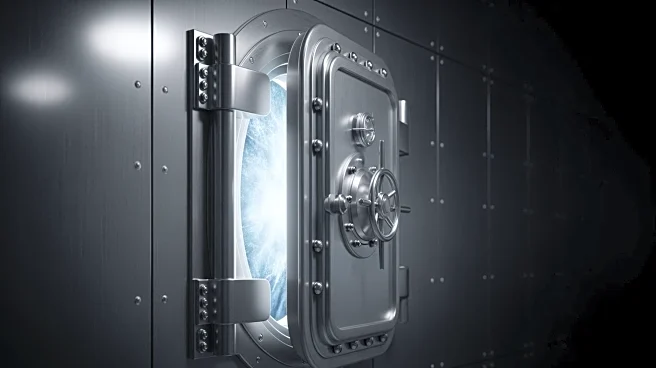What's Happening?
EU leaders have agreed to support Ukraine's financial needs for the next two years but have postponed a decision on releasing billions of euros in frozen Russian assets to fund Ukraine's defense. The decision to use
€140 billion in Russian assets held in a Belgian clearing house was delayed due to concerns raised by Belgium. The move would be in addition to existing sanctions targeting Russia's oil revenues. Ukrainian President Volodymyr Zelensky attended the summit in Brussels, advocating for the use of Russian assets as reparations for the war.
Why It's Important?
The decision to delay the use of frozen Russian assets highlights the complexities of international law and the challenges in balancing financial support for Ukraine with legal and diplomatic considerations. The EU's commitment to support Ukraine financially underscores the bloc's solidarity with Ukraine and its stance against Russian aggression. The move could have significant implications for EU-Russia relations and the broader geopolitical landscape, potentially affecting trade and diplomatic ties.
What's Next?
EU leaders plan to revisit the issue at a summit in December, aiming to resolve outstanding concerns and potentially formalize a legal proposal for using Russian assets. The ongoing discussions reflect the EU's strategic approach to supporting Ukraine while navigating legal and diplomatic challenges. The outcome of these talks could influence future EU policies and its role in the Ukraine conflict.
Beyond the Headlines
The delay in using frozen Russian assets raises ethical and legal questions about the use of foreign assets for reparations. It also highlights the EU's cautious approach in dealing with complex geopolitical issues, balancing support for Ukraine with maintaining diplomatic relations with Russia. The decision could set a precedent for how international assets are used in conflict situations.









